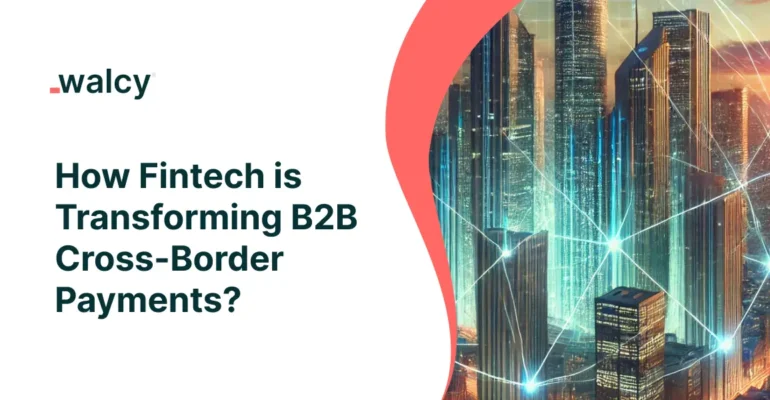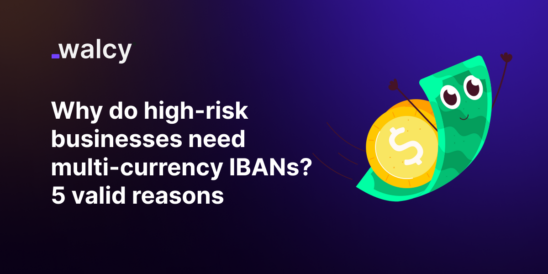Despite the global revolution led by neobanks and digital banking, b2b cross-border payments remain expensive, with a significant portion of the population still unbanked. Additionally, cross-border transactions are often slow and tedious. The intricacies of B2B transactions make this a difficult global problem to tackle. However, evolving banking and fintech innovations are beginning to ease this issue.
Let’s delve into some startling facts and figures that highlight the dire need for global reform in banking:
- 80% of B2B transactions worldwide are still initiated manually, with an average processing time of 34 days, according to research conducted by PYMNTS and American Express in 2021. Despite being an older study, these numbers have little improvement, and a significant leap is necessary.
- Another disconcerting statistic is the $120 billion annual cost to businesses due to payment errors, reconciliation issues, human errors, and system inefficiencies, as reported by KPMG in 2021.
However, the rise of fintech companies has led to significant improvements. B2B cross-border Payment fulfillment times have been reduced by 50%, and cross-border transaction costs have decreased by 30 to 40%. Despite these advances, these costs are still high, making the phrase “The world is a global village” somewhat of an oxymoron in this context.
Fintech: A Historical Perspective
Fintech—a compound word of “financial technology”—defines the adoption of technology to automate and digitize current manual operations in the financial industry.
The simplification of financial transactions for consumers and business owners is a key driver of the rapid adoption of fintech. Fintech companies span various services, including credit management, peer-to-peer transfers, automated portfolio management, online brokers, personal finance apps, asset management, cryptocurrencies, and blockchain-based finance apps. These platforms and innovations have disrupted traditional and legacy banking, playing the role of disruptors in the industry.
If you explore the history of the morpheme fintech, the advent of fintech started in the late 20th century, and the earliest recorded evidence dates back to 1967 when the Fin-Tech term was coined in the newspaper “The Boston Globe.” Then, during the 1960s and 1970s, the digital revolution started creating revolutionary ramifications in the banking, insurance, trading, and payment sectors. The introduction of the ATM in London by Barclays, the establishment of automated clearing services for electronic funds transfers between banks, the establishment of NASDAQ for digital stock exchange, and the foundation of SWIFT (Society for Worldwide Interbank Financial Telecommunication) were key events during this period.
However, the exponential increase of Digital Financial Services in our daily lives happened during the 1980s and 1990s period when the Bloomberg terminal was introduced, where finance professionals could access market data. During this same period, the first online banking service was operational by the Bank of Scotland, called Homelink.
The Dot-com boom, where PayPal’s foundation was another pivotal moment allowing easy online payment systems, caused other fintech startups to follow the same business model. The major shift was that there was no need for money orders or checks for transfer, the transfers were faster, and the safety was well-demonstrated.
The most crucial moment in fintech history was the 2008 Global Financial Crisis, originating from the US Housing Crisis, which acted as a catalyst for the growth of the fintech industry. The introduction of digital currency and decentralized finance sparked a wave of adoption and development of cryptocurrencies. Transparent, decentralized, and publicly curated systems are the new norm due to this development.
Furthermore, the 2020 COVID-19 Pandemic also had a profound impact on the fintech industry. The self-quarantine period allowed people to utilize digital payment solutions based on digital channels such as smartphones and contactless technologies. NFTs (non-fungible tokens) also gained rapid popularity, paving new avenues for decentralized finance.
The Role of Fintech in Transforming B2B Cross-Border Payments
Since manual intervention by banks is a slow process, and digital automation of payments reduces both payment costs and turnaround times, fintech adoption is inevitable for businesses. Some of the key changes are as follows:
- Faster TATs:
With the advent of digital and automation technology in financial services, there is a reduction in human intervention. Digital services run all the necessary checks and initiate further processes. Financial transactions become error-free and instant. However, since the process involves numerous intermediate steps and checklists for compliance, which still require human intervention, fintech is revolutionizing the time required for fulfillment.
- Automated Compliance (Regulation Tech):
Compliance is one of the major obstacles for fintech, as cross-border transactions must comply with legislation in many countries and territories.
However, compliance checks for Anti-Money Laundering (AML) and Counter-Terrorism Financing (CTF), the genuine sourcing of funds, and tracing of funds flow are now actively scrutinized by neo banking platforms’ compliance management and trust tools, substantially increasing the chances of detecting non-compliant transfers. Furthermore, AI and ML algorithms have further consolidated cross-border transfers, making them more compliant. Given the wealth of data on financial transactions, the accuracy of these algorithms is improving.
- Blockchain Technology:
After the 2008 global financial crisis, rapid developments in blockchain or distributed ledger technology began, leading to the advent of cryptocurrency and DeFi, another term for Decentralized Finance. This, in the future, could exempt intermediaries such as brokerages, exchanges, or banks, from utilizing smart contracts that implement blockchain technology. In this way, global transactions can be conducted using a global ledger, providing a quicker method for managing complex financial transactions. Since it can occur directly between parties without the need to go through traditional intermediaries the transactions can be trustless, meaning that parties can trust that the transaction records are accurate because they use cryptographic techniques.
The immutability of records is also a great way to reduce the chances of fraud and enhance trust among the parties. Immutability prevents the chances of alteration; even if a record is altered, the alteration will not reflect on other ledgers; therefore, the record is deemed invalid.
- Smart Contracts:
Self-executing contracts have terms included directly in the code, and the conditions determine the execution of agreed-upon actions, removing the need for intermediaries. This speeds up the transaction process significantly and reduces costs.
The Benefits of Fintech
- Speed and Efficiency:
Fintech businesses specializing in cross-border payments are working fiercely to develop innovative methods to shorten payment processing time. However, in today’s context, the speed and efficiency compared to manual processes are significantly better, and transactions that would take days now happen in minutes and seconds, thanks to digital payment automation strategies.
- Security and Transparency:
Fintech platforms enhance the security and transparency of transactions through robust encryption and transparent processes.
- Compliant yet Streamlined:
All transactions with neobanks and digital banks are compliant, and the obligations are handled by reputable governing bodies, such as Reserve Banks and Monetary Authorities of respective countries. Cross-border compliance is complicated, as are the digital processes that seamlessly comply with the compliance requirements and process funds accordingly.
- Multi-currency Flexibility:
Most fintech companies allow a user to possess a multi-currency wallet system, where they can easily withdraw and deposit money in multiple countries just by realizing the FX rates involved. TransferWise is the current pioneer in multi-currency wallet setups. Some neobanks in the fintech space allow ATM withdrawals, utility payments via cross-border channels, and convert currencies within the mobile app or web applications too like Walcy does.
- Banking the Unbanked:
Blockchain is a promising technology that will extend the horizon of modern banking to the rural outskirts of the world, and therefore, allow access to a population that was unbanked. The possibility of the internet from the sky, Skylink, allows people to communicate.
Case Study of Wise
Wise, previously known as TransferWise, is a disruptor in traditional cross-border transfers, founded in 2011. Since then, Wise has been extensively accepted, with millions of happy customers and billions of money transferred every day through its platforms.
Two founders, Taavet Hinrikus and Kristo Käärmann, after experiencing the high costs and ineptitudes of traditional banking and traditional cross-border transfers firsthand, came up with TransferWise; the solution as a peer-to-peer money transfer platform that directly matches users sending and receiving money in different currencies. This method of matching inward and outward currency exchanges was called the Matching process, which was an important fintech innovation.
As a result, many SMEs quickly adopted TransferWise for their b2b cross-border payments, all credit to its cost-effectiveness and ease of use. Cost savings, efficiency gains, and global reach were easy and streamlined for SMEs all over the world, thanks to Wise.
Conclusion
To recapitulate, fintech companies have revolutionized b2b cross-border payments by reducing costs, enhancing security, instilling a sense of security with online payments, and significantly reducing turnaround times. Furthermore, compliance challenges are addressed via innovative regulation technology and AI/ML-driven solutions. Importantly, the introduction and leverage of blockchain technology and smart contracts offer promising future implementation solutions for faster and more reliable global transactions. Finally, we can see real examples of fintech platforms like Wise paving the way for SMEs and even large enterprises to thrive in a globalized economy and bank the unbanked population.
Read More: Know everything about the overseas payments
Do follow us on Facebook and Linkedin, to stay connected with us.



